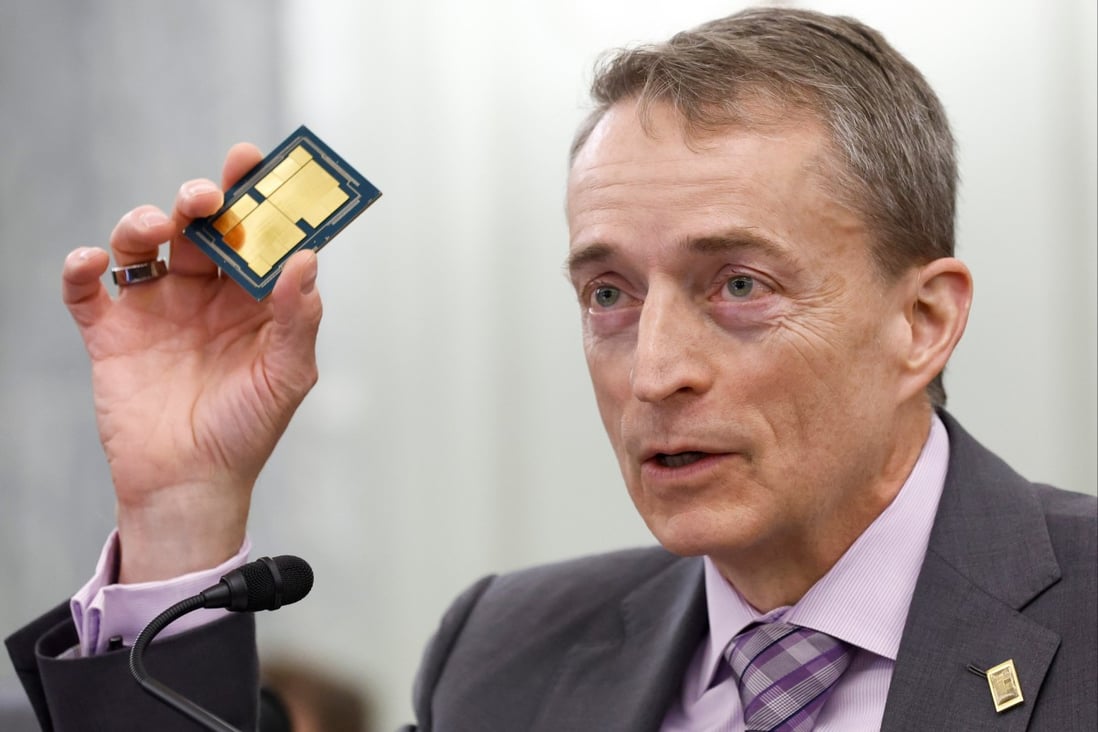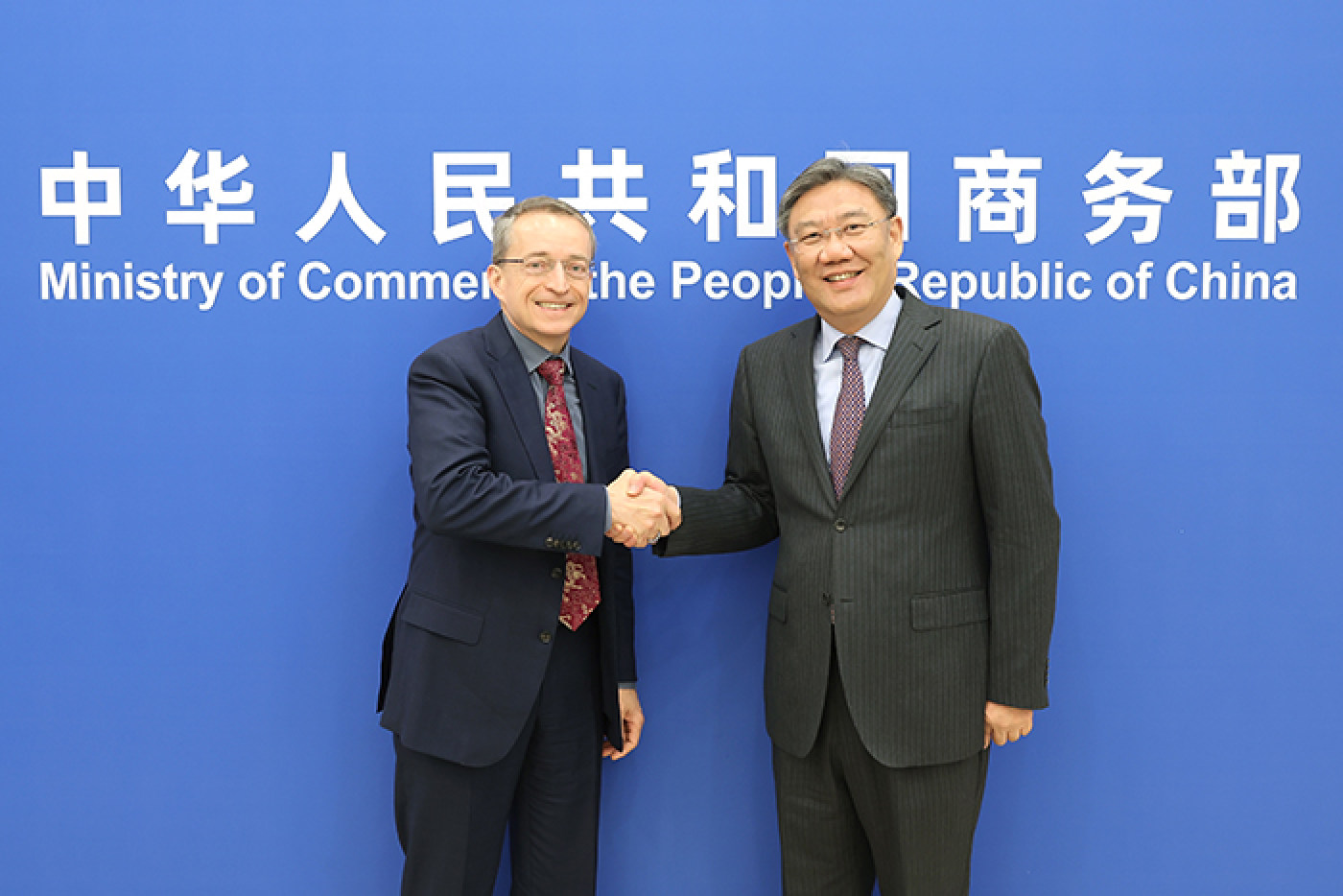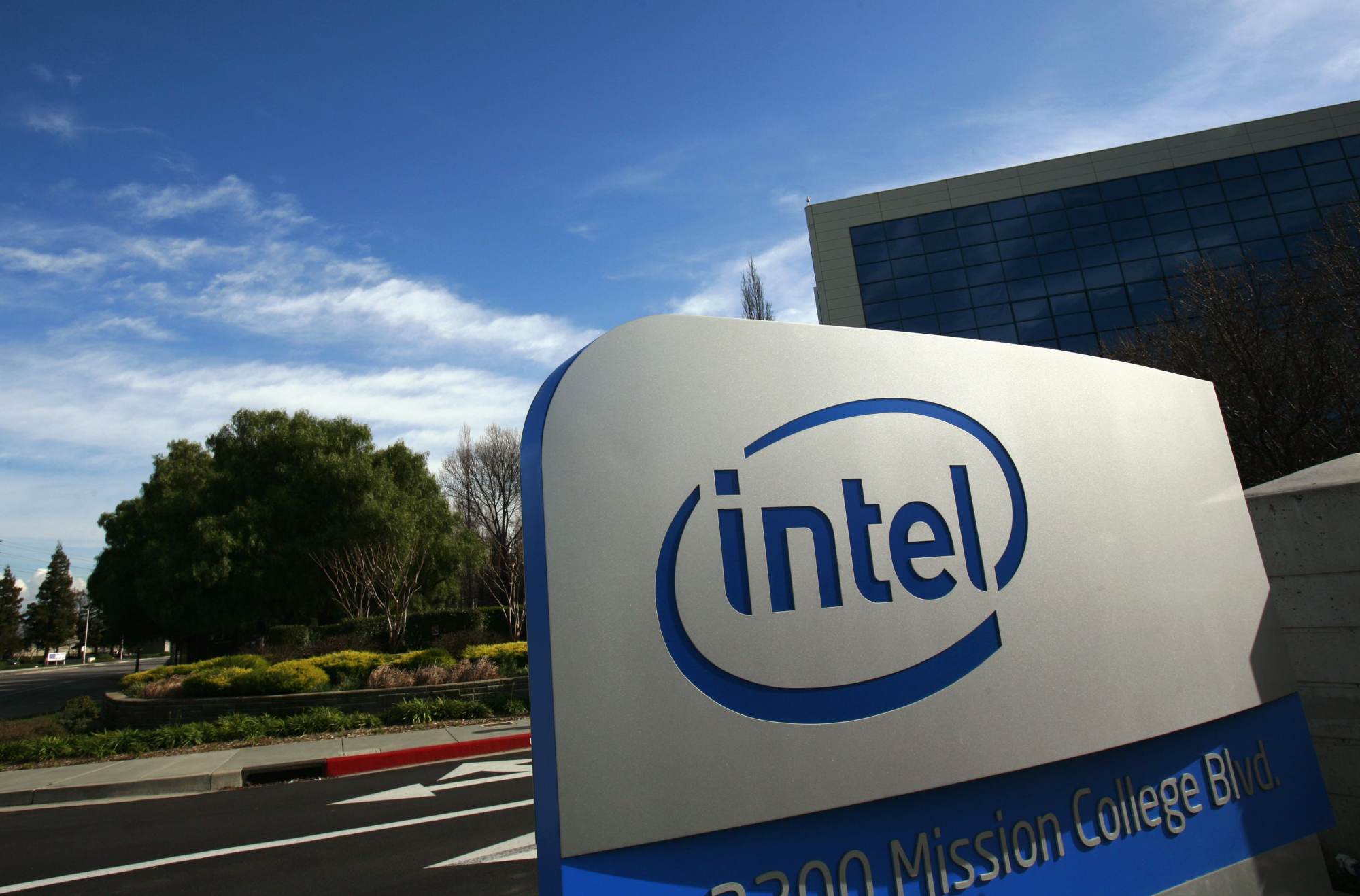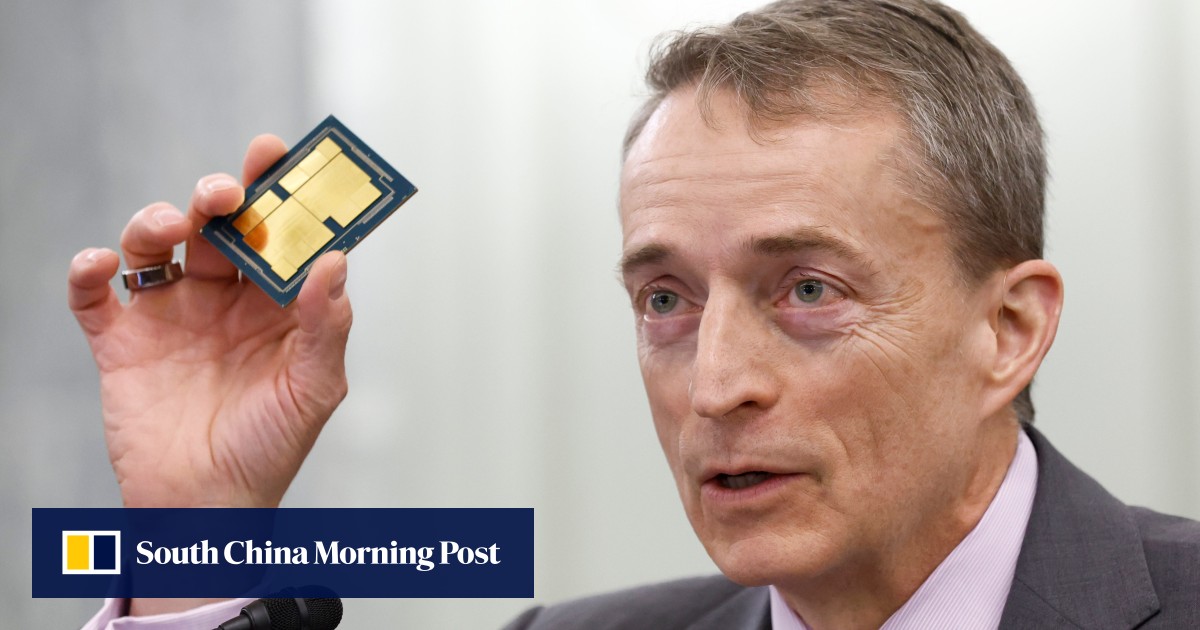- China is ‘one of Intel’s most important markets’, Pat Gelsinger said on Wednesday during his first visit to the country as company CEO
- The US chip giant is reportedly introducing a new version of its data centre GPU to comply with Washington’s export curbs targeting China

Patrick Gelsinger, CEO of Intel Corp, holds an Intel integrated circuit die during a Senate hearing in Washington in March 2022. Photo: Bloomberg
China remains a key market for American semiconductor giant Intel Corp, CEO Patrick Gelsinger said, despite the Biden administration’s growing efforts to restrict the export of advanced chip technologies to Chinese entities.
“Intel’s presence in China is very important, because the country is one of the world’s largest markets, and also one of Intel’s most important markets,” Gelsinger said at a sustainability summit hosted by the company in Beijing on Wednesday, according to multiple Chinese media outlets.
Gelsinger told the audience that Intel, which opened its first Beijing office in 1986, has long relied on local partners when it comes to research and development, standards setting, and manufacturing of products.

Intel Corp CEO Patrick Gelsinger (left) shakes hands with Chinese Commerce Minister Wang Wentao during a meeting in Beijing on April 11, 2023. Photo: Handout
The speech comes as US chip companies are trying to balance business interests in China with tightening export controls on advanced semiconductors.
The Chips and Science Act, which was enacted into law last summer, earmarks nearly US$53 billion in subsidies for domestic semiconductor manufacturing, while barring recipients from building advanced chip-making capacity in China.
In October, Washington launched a sweeping regulatory update that restricts certain chip-making tools and design software from being sold to companies in China. The rules also bar American citizens from supporting China’s development of advanced chips.
On Tuesday, Gelsinger met Chinese Commerce Minister Wang Wentao to exchange their views on “China-US economic and trade relations, maintaining security and stability of the global semiconductor industry chain, and Intel’s development in China”, according to a statement from the Ministry of Commerce.
China’s development will “provide new opportunities for the world, and a broader market for multinational corporations such as Intel”, Wang was quoted as saying.

An Intel sign is seen at the company’s headquarters in Santa Clara, California. Photo: Reuters
Gelsinger’s trip to China, the first since he took the helm as CEO in 2021, came weeks after a group of international C-suite executives, including Apple CEO Tim Cook, met top Chinese officials in the capital city, in a show of confidence in the Chinese market amid geopolitical uncertainties.
Similar to Apple, Intel earns a large part of its revenue from China. The country is the chip firm’s largest market outside the US, generating 27 per cent of the firm’s global revenue last year, according to its latest annual report.
In an apparent effort to comply with US export curbs on advanced chips to China, Intel plans to retire its Max 1350 data centre graphics processing unit (GPU) and introduce a new Max 1450 GPU later this year to cater to “different markets”, US technology news outlet Tom’s Hardware reported on Tuesday.
Intel did not immediately respond to a request for comment on Wednesday.
Gelsinger on Wednesday also praised China’s innovation in driving sustainability, promising that the company will “collaborate with China to support its digital transformation and address energy issues”.
On Saturday, the company also announced it is establishing a subsidiary in Sanya city in China’s southern Hainan province, focusing on international trade, technology services and investment.

China still a key market for Intel, CEO says in Beijing trip
Pat Gelsinger’s visit comes as US chip companies are trying to balance business interests in China with tightening export controls on advanced semiconductors.
